Disclosure: I have partnered with YMC and NutraVege and have received compensation for this post. All opinions are my own.
Last year, I started looking into nutritional requirements for a healthy pregnancy and one of the key nutrients that was highlighted over and over again was omega-3 fatty acids. I wanted to understand why it is so important during pregnancy and for our overall health. I put together this simple Vegan Guide to Omega-3s to share with you what I learned.
Why are Omega-3s Important?
Omega-3 fatty acids are the main building blocks for your brain, nervous system and cell membranes. Unfortunately, many vegans don’t get enough of them. There are two types of essential fatty acids that must come from foods: omega-3s and omega-6s. Most people get too much omega-6 fatty acid which is present in foods like vegetable oils, nuts and margarine, but not enough omega-3. We need omega-3s for proper brain development and nerve functioning. They are important for mood stability, attention span, vision, disease prevention and much more.
Omega-3 Forms
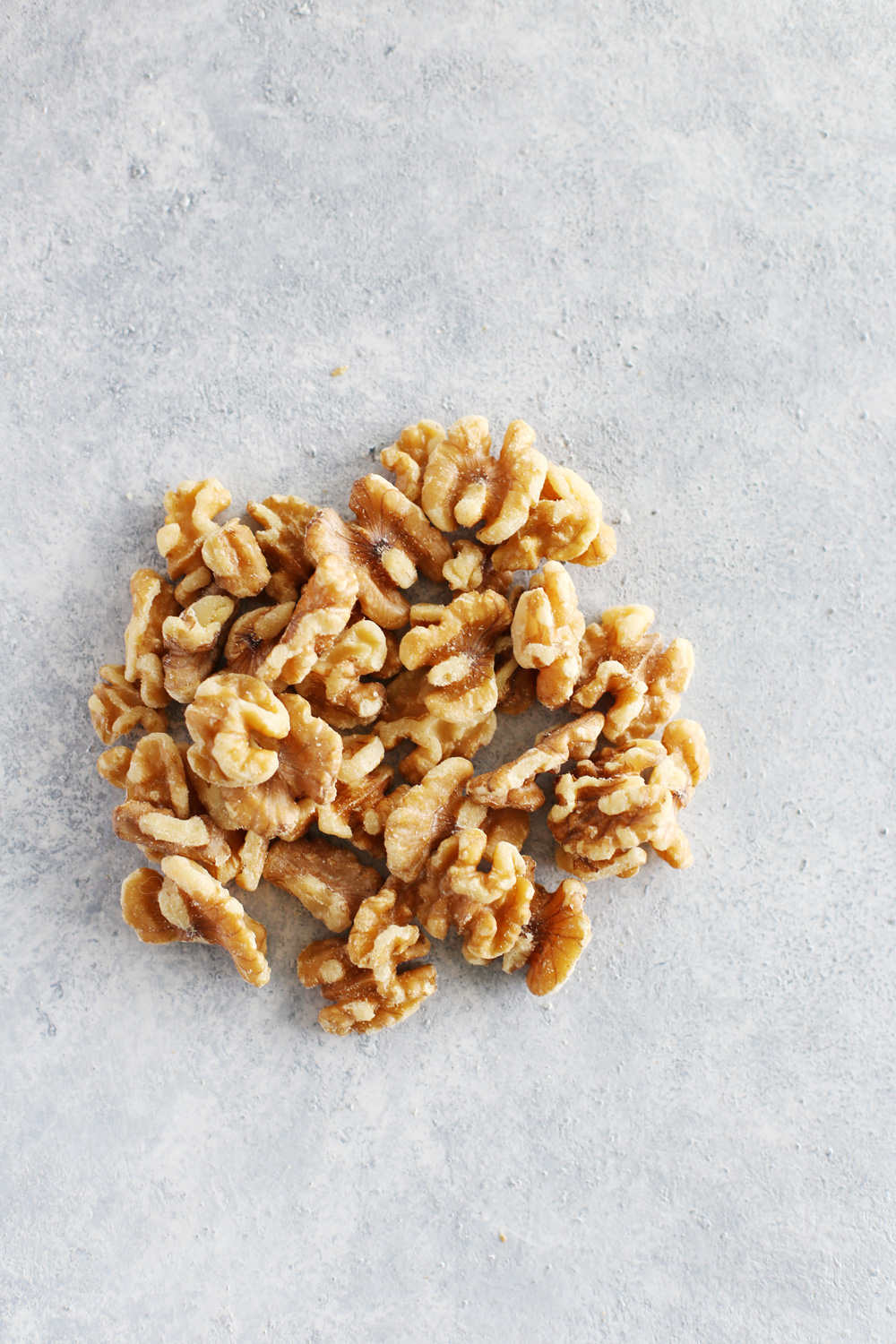 The three main forms of omega-3 fatty acids are alpha-linoleic (ALA), eicosapentaenoic acid (EPA) and docosahexaenoic acid (DHA). ALA are essential fats, meaning that our bodies need them, but can’t produce them. They must therefore be obtained from food sources. DHA is considered one of the most important nutrients that you need to focus on during pregnancy. Your body can convert some ALA into EPA and DHA, but the conversion rates are believed to be very low (less than 5%). To increase the levels of EPA and DHA in your body, it’s recommended that you consume foods high in those fatty acids or consider supplementing.
The three main forms of omega-3 fatty acids are alpha-linoleic (ALA), eicosapentaenoic acid (EPA) and docosahexaenoic acid (DHA). ALA are essential fats, meaning that our bodies need them, but can’t produce them. They must therefore be obtained from food sources. DHA is considered one of the most important nutrients that you need to focus on during pregnancy. Your body can convert some ALA into EPA and DHA, but the conversion rates are believed to be very low (less than 5%). To increase the levels of EPA and DHA in your body, it’s recommended that you consume foods high in those fatty acids or consider supplementing.
Vegan Sources of Omega-3
Great. So I all I need to do is eat food that is high in ALA, EPA and DHA. Seems pretty easy, doesn’t it? Yes and no. Vegans can get their omega-3s from plant sources such as walnuts, chia seeds, flaxseed, hemp, tofu and canola oil; however the omega-3s in all of these sources are ALA. During pregnancy and breastfeeding, plant sources of ALA omegas are thought to be insufficient. So how can we secure a solid source of DHA?
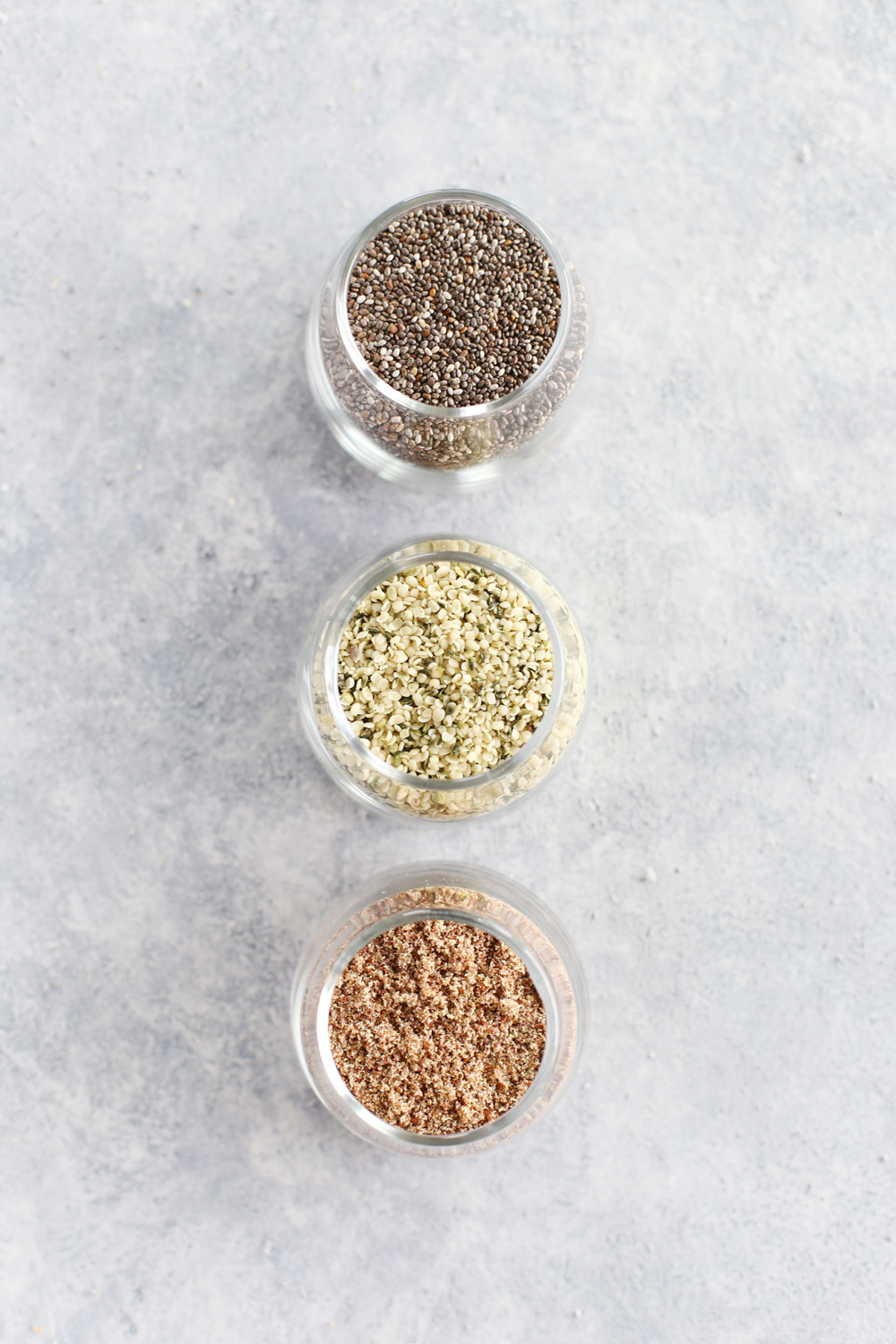 DHA is one of the reasons fish gets promoted so heavily. You’ve probably heard it over and over again how great fish oil is for your health. Yes, cold-water fish are full of omega-3s, but if you follow a vegan or vegetarian diet, this is not an option for you. For that reason a lot of people believe that vegans can’t get DHA since we won’t eat fish. Luckily, that’s not true. We can obtain DHA exactly the same way the fish does – from green algae.
DHA is one of the reasons fish gets promoted so heavily. You’ve probably heard it over and over again how great fish oil is for your health. Yes, cold-water fish are full of omega-3s, but if you follow a vegan or vegetarian diet, this is not an option for you. For that reason a lot of people believe that vegans can’t get DHA since we won’t eat fish. Luckily, that’s not true. We can obtain DHA exactly the same way the fish does – from green algae.
Supplements
I found that adding a daily supplement of EPA and DHA to my regime is the easiest and most practical way of ensuring that my body gets enough of these fatty acids. A few months before I got pregnant, I discovered NutraVege. It’s a plant-based omega-3 supplement that is high in EPA + DHA and is tested by a third party for purity and potency to ensure the the highest quality. It comes from sustainably sourced algae and is completely vegan. I’ve been taking 1 teaspoon of their Omega-3 Plant Extra Strength every single day for almost a year now. It provides me with 1,000 mg of EPA + DHA per day and unlike the fish oil supplements (I used to take them as a child) tastes pretty good.
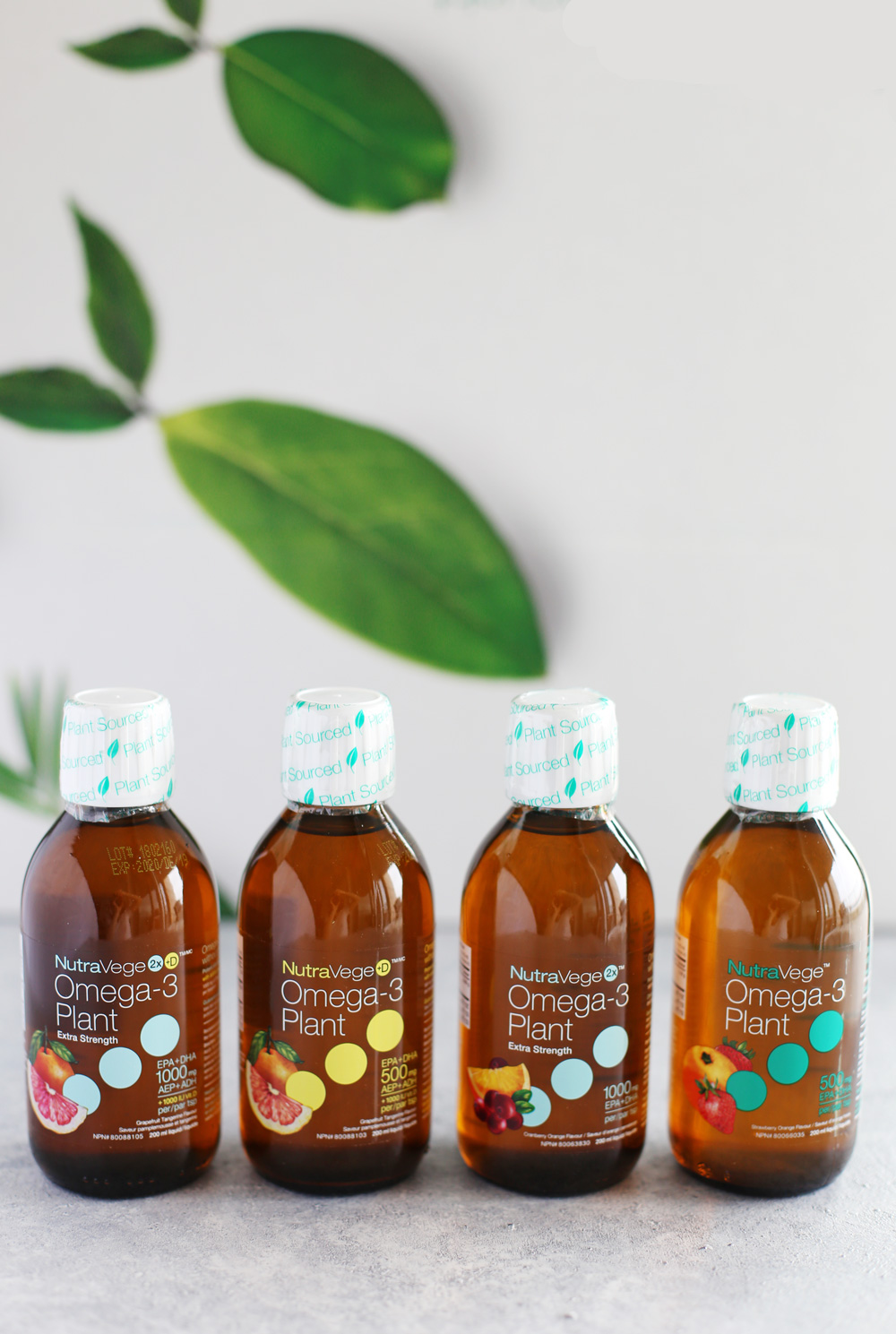 When NutraVege reached out to me in the beginning of this year with a collaboration proposal, it was no-brainer. I’ve already been taking and loving their supplements for several months at that point and have been recommended them to friends and family.
When NutraVege reached out to me in the beginning of this year with a collaboration proposal, it was no-brainer. I’ve already been taking and loving their supplements for several months at that point and have been recommended them to friends and family.
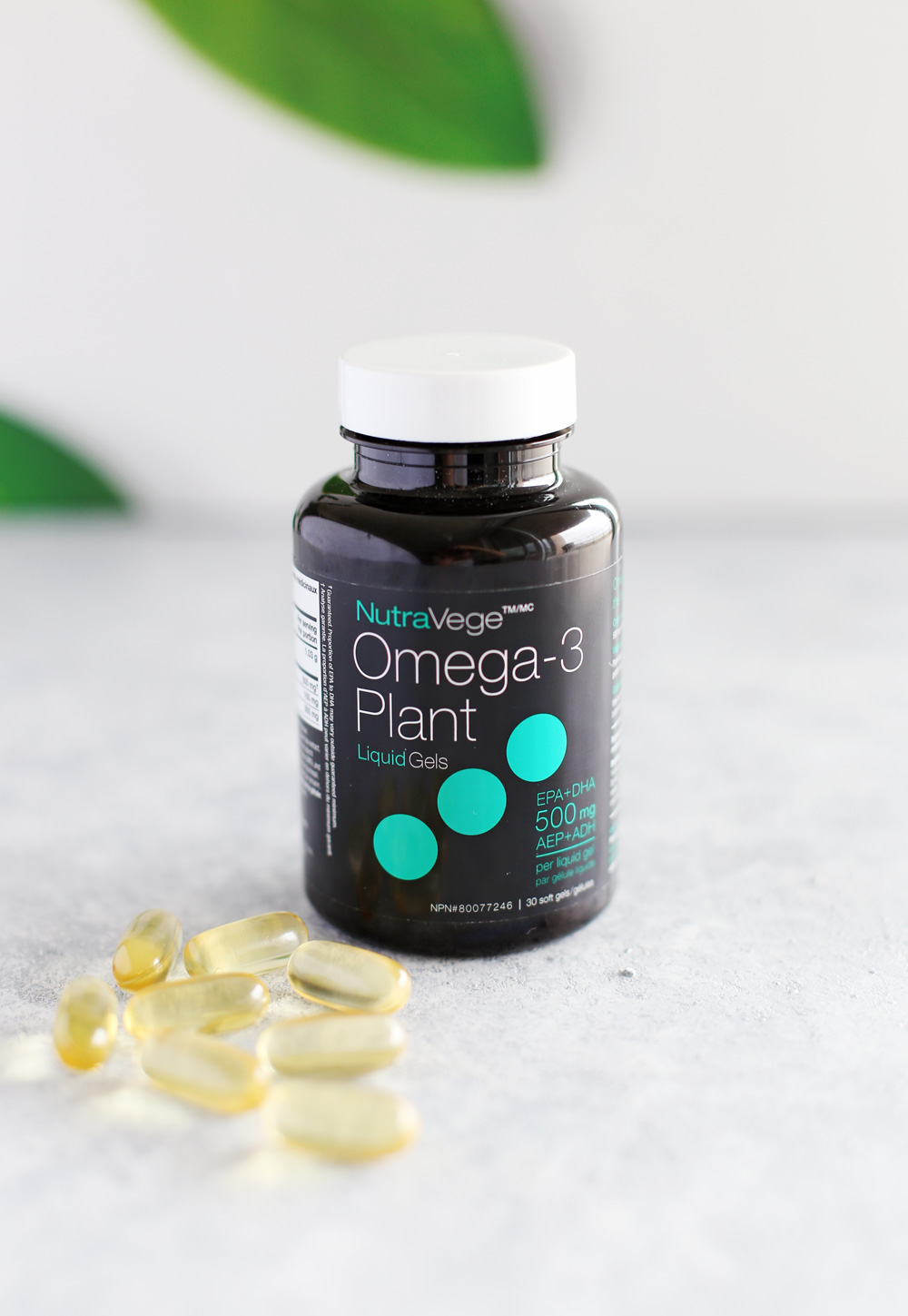 While I’ve only tried NutraVege in liquid/oil form, it also comes in liquid-gel format (which I’m thinking might have been easier to take during the first trimester). I personally find the taste of the liquid supplement quite pleasant, you can choose between strawberry orange, lemon, grapefruit tangerine and cranberry orange flavours. If you struggle with taking oil-based supplements, you can definitely incorporate the liquid NutraVege into your favourite smoothie and smoothie bowl recipes. Below is a recipe for Berry Banana Smoothie made with chia, flaxseed (ALA omega-3s!) and the Cranberry Orange Extra Strength NutraVege.
While I’ve only tried NutraVege in liquid/oil form, it also comes in liquid-gel format (which I’m thinking might have been easier to take during the first trimester). I personally find the taste of the liquid supplement quite pleasant, you can choose between strawberry orange, lemon, grapefruit tangerine and cranberry orange flavours. If you struggle with taking oil-based supplements, you can definitely incorporate the liquid NutraVege into your favourite smoothie and smoothie bowl recipes. Below is a recipe for Berry Banana Smoothie made with chia, flaxseed (ALA omega-3s!) and the Cranberry Orange Extra Strength NutraVege.
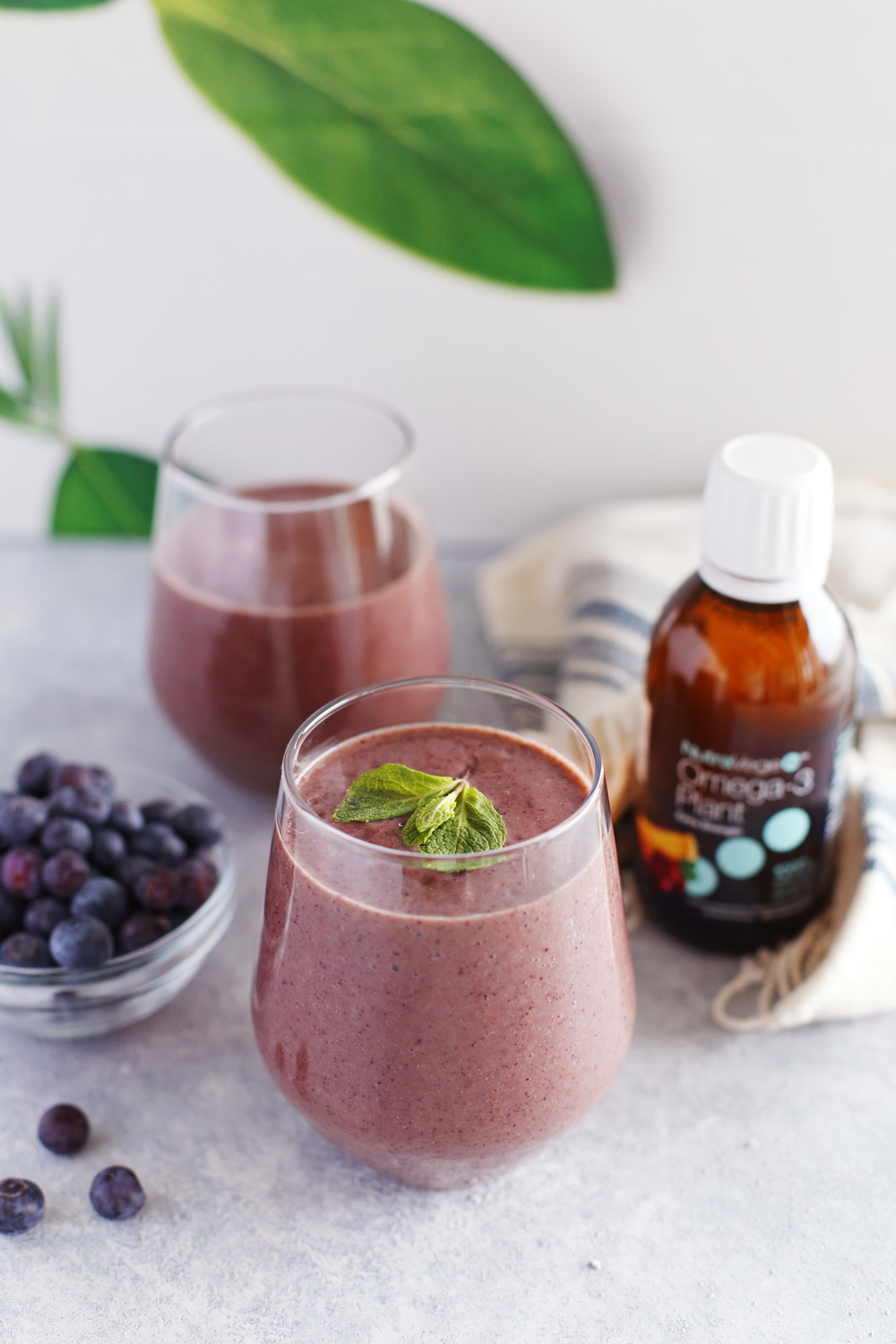 I believe that everyone regardless of their diet should consider supplementing Omega-3, but do keep in mind that supplements are no substitutes. You still want to have plenty of natural omega-3 sources in your diet including nuts, seeds, beans and vegetable oils.
I believe that everyone regardless of their diet should consider supplementing Omega-3, but do keep in mind that supplements are no substitutes. You still want to have plenty of natural omega-3 sources in your diet including nuts, seeds, beans and vegetable oils.
- 1¼ cup water
- 1½ frozen bananas
- ⅓ cup frozen blueberries
- 4-5 frozen strawberries
- 1 date
- 1 tbsp chia seeds
- 1 tbsp ground flaxseed
- 2-3 celery stalks
- ½ cup spinach
- 1 tsp of NutraVege Omega-3 Extra Strength
- Combine all of the ingredients in a blender and blend until smooth.
- Enjoy!

